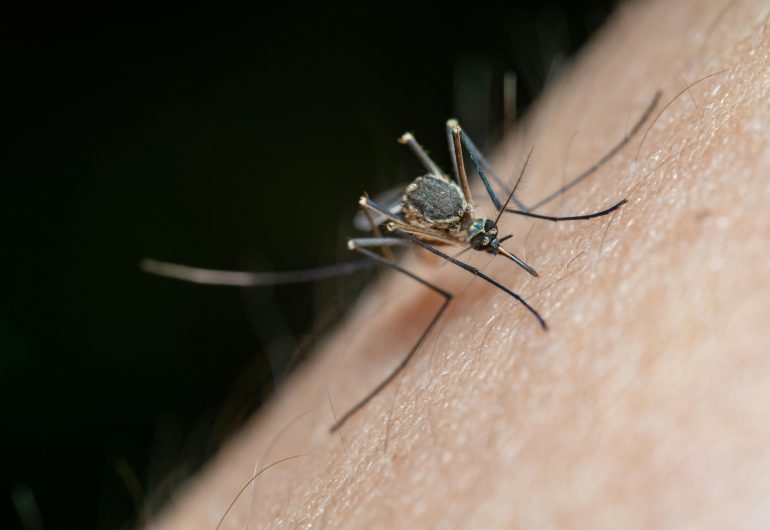Mosquitoes, those pesky insects buzzing around, are a familiar annoyance to many, especially in regions like Northern Ontario, Canada. With its lush forests, abundant lakes, and marshy areas, Northern Ontario provides the perfect breeding ground for these blood-sucking insects. However, amidst the irritation they cause, there are numerous facts and myths surrounding mosquitoes that deserve attention and clarification.
In this article, we’ll delve into the world of mosquitoes in Northern Ontario, separating fact from fiction and shedding light on their biology, behavior, and the measures one can take to mitigate their presence.
The Basics of Mosquitoes
Fact: Diversity and Abundance
Mosquitoes belong to the family Culicidae, and there are over 80 species of mosquitoes recorded in Ontario alone. In Northern Ontario, the most common species include Aedes vexans, Aedes japonicus, and Culex pipiens. These insects thrive in various habitats, from wooded areas to urban environments, where they breed in stagnant water sources like puddles, ponds, and even discarded containers.
Myth: All Mosquitoes Bite
Contrary to popular belief, not all mosquitoes feed on blood. Both male and female mosquitoes primarily feed on nectar and other plant juices. It is only the female mosquitoes that require blood meals to nourish their eggs. This distinction is important in understanding mosquito behavior and how to effectively manage their populations.
Fact: Role in Ecosystem
Despite their reputation as nuisance pests, mosquitoes play a vital role in the ecosystem. As larvae, they serve as a food source for aquatic organisms like fish and amphibians. Additionally, adult mosquitoes are important pollinators, particularly for plants that bloom in the evening or night.
Dispelling Myths
Myth: Mosquitoes Prefer Certain Blood Types
There is a common misconception that mosquitoes are attracted to specific blood types, such as Type O. However, scientific studies have found no conclusive evidence to support this claim. Mosquitoes are primarily attracted to the carbon dioxide exhaled by humans, body heat, and certain odors emitted by the skin.
Myth: Eating Garlic or Certain Foods Repels Mosquitoes
While some anecdotal evidence suggests that consuming garlic or certain foods like bananas can repel mosquitoes, there is limited scientific backing for these claims. The effectiveness of such methods in repelling mosquitoes varies greatly among individuals and may not provide reliable protection against mosquito bites.
Myth: Mosquitoes Transmit HIV/AIDS
Contrary to popular belief, mosquitoes do not transmit HIV/AIDS. The virus that causes AIDS, HIV (Human Immunodeficiency Virus), cannot survive in mosquitoes and does not replicate within their bodies. HIV is primarily transmitted through sexual contact, blood transfusions, or sharing needles with an infected person.
Managing Mosquito Populations
Fact: Eliminating Breeding Sites
One of the most effective ways to reduce mosquito populations is to eliminate their breeding sites. Residents of Northern Ontario can take simple steps such as regularly emptying stagnant water from containers, cleaning gutters, and maintaining swimming pools to prevent mosquitoes from laying their eggs.
Fact: Using Insect Repellents
Applying insect repellents containing DEET, picaridin, or oil of lemon eucalyptus can provide protection against mosquito bites. When spending time outdoors, especially during peak mosquito activity times at dawn and dusk, wearing long-sleeved shirts, long pants, and using mosquito nets can also help minimize exposure to mosquitoes.
Fact: Installing Screens and Mosquito Traps
Installing screens on windows and doors can prevent mosquitoes from entering homes and outdoor living spaces. Additionally, utilizing mosquito traps, such as those that emit carbon dioxide to attract and capture mosquitoes, can be an effective means of reducing their populations in localized areas.
Conclusion
Mosquitoes are a ubiquitous presence in Northern Ontario, where their abundance can often be a source of frustration for residents and visitors alike. However, understanding the facts and dispelling common myths about mosquitoes is essential for effective mosquito management and minimizing their impact on daily life.
By recognizing the diverse species of mosquitoes present in the region, understanding their biology and behavior, and implementing practical measures to reduce their populations, individuals can better protect themselves from mosquito-borne diseases and enjoy the outdoor beauty of Northern Ontario without undue irritation.
While mosquitoes may never be completely eradicated, through collective efforts and informed actions, we can mitigate their presence and coexist more harmoniously with these buzzing insects in the pristine wilderness of Northern Ontario.



